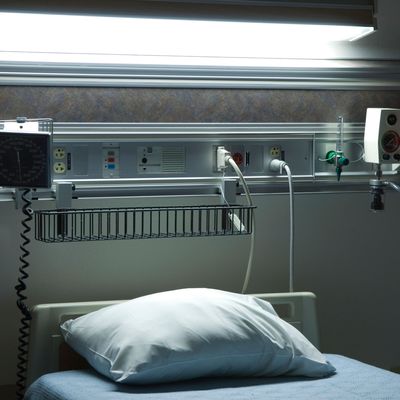
One thing the American health-care system does not handle very well is death, though there are some encouraging signs that this could be on the verge of changing. What’s missing from the conversation, as Atul Gawande and others have eloquently argued, is the deeply uncomfortable fact that there are things that can be worse than death: loss of dignity, loss of agency, or loss of a sense of purpose, to name a few.
With that in mind, a new paper published online in JAMA Internal Medicine this week is especially interesting — though, frankly, the subject would be an intriguing one no matter the context. Over the course of nine months at a small Pennsylvania hospital, researchers from the University of Pennsylvania surveyed 180 seriously ill people, playing a rather dark version of the game Would You Rather: Would they rather live with certain symptoms or necessities of care — or would death be preferable?
As Quartz reported earlier this week, there were four scenarios in particular that the patients rated “as bad or worse than death”:
• Incontinence
• Needing a breathing machine
• Needing a feeding tube
• Needing care all the time
There are caveats here, as the Quartz piece notes. For one, this is limited to a relatively small number of patients, at just one hospital; who knows if these results would hold true if a wider variety of patients were surveyed?
For another (and this is probably more important), studies in psychology show that people are reliably terrible at what’s called affective forecasting — that is, predicting how they’ll feel in the future. In one rather eerily relevant study, psychologists Dan Gilbert (of Harvard University) and Tim Wilson (of the University of Virginia) observe that most (healthy) people say that if their quality of life is low, they would rather not have medical interventions designed to give them more time. “However,” as the American Psychological Association’s website notes, “when medical researchers interviewed people who were slowly dying and experiencing a very low quality of life, such people almost unanimously reported that they would go to great lengths to add even a few days to their lives.” Our future selves are frustratingly unknowable.
Still, it’s a useful direction of research for broadening the science on end-of-life care. A study like this one is a tiny step toward Gawande’s vision, told with heartbreaking clarity in the 2014 best seller Being Mortal, of making life meaningful, all the way to the end.




